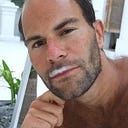In “Rebel Talent: Why It Pays to Break the Rules at Work and in Life”, Harvard Business School Professor Francesca Gino doesn’t write about sabotaging your company or product. If you feel like being disobedient or contrarian just for the sake of it, then Gino’s book isn’t really going to add much value. If, however, you’re looking to challenge conventions or battle inertia to come up with new ideas and innovate, than you should definitely pick up “Rebel Talent”.
In the book, Gino touches on a number of critical aspects of breaking the rules in a way to move you forward. She explains how “rebels are engaged; they have abundant energy and mental resilience, they invest in their work and personal relationships, persist even when the roads get tough.” There are five core ‘rebel traits’ which all are paths to engagement:
Novelty — The talent for novelty allows us to fight the boredom that comes with routines and traditions.
Curiosity — The talent for curiosity allows us to combat the tendency to stick with the status quo.
Perspective — The talent for perspective allows us to rebel against our narrow focus when we approach problems or decisions, which usually includes only one view — our own.
Diversity — The talent for diversity allows us to defy the stereotypes that are so ingrained in human nature.
Authenticity — The talent for authenticity allows us to be honest about our preferences, emotions and beliefs.
https://trsmag.com/rebel-talent-review/
Novelty
Citing management scholar James March, Gino distinguishes between exploitation and exploration, and the trade-offs this distinction introduces. Exploitation involves improving and refining existing products and processes. This typically happens through a focus on efficiency and execution. In contrast, the focus of exploration is on on identifying new ideas and ways of doing things. This involves things like risk taking and experimentation.
Curiosity
When it comes to changing things at work or in life, curiosity pays: “When we open ourselves to curiosity, we are more apt to reframe situations in a positive way” Gino writes. She argues that curiosity that makes us much more likely to view a tough problem at work as an interesting challenge to take on.” At the same time, there seems to be a natural inclination to ask questions — both at work and in life as we get older. Simple ways to foster curiosity is to be open in saying “I don’t know but let’s find out” or encouraging people to ask “What if …?”
Perspective
In the book, Gino talks about “counterfactual thinking”, forgetting what you know and considering a situation from a fresh perspective. This way of thinking is also referred to as “the beginners mindset” or “unlearning”. In the words of the late Zen Buddhist monk Shunryu Suzuki: “If your mind is empty, it is always ready for anything, it is open to everything. In the beginner’s mind there are many possibilities, but in the expert’s mind there are few.” In other words, rebel talent will always try to broaden their perspective and thus mitigate the “curse of knowledge” where we overestimate the amount of knowledge that we or others have.
Diversity
“Rebels know that to effectively leverage differences, their organisations should work beyond race and gender” is how Gino describes the role and importance of diversity. “In the rebel mind, all differences matter” she argues, stressing that diversity isn’t a quota system but a long-range vision for growth.” I really like how Gino zooms in on “cognitive diversity” which occurs when different perspectives and problem solving approaches come together.
Authenticity
Authenticity is the only aspect of “Rebel Talent” that I struggle to fully grasp and convey, as I feel that to be authentic means so many different things to different people. However, I like how Gino mentions that people being able to express themselves honestly is a core aspect of authenticity.
People being able to be their ‘true selves’ at work, and throwing this into the mix when tackling tough challenges or coming up with new ideas. This doesn’t mean that one’s ability to be authentic can be abused to behave like an asshole or to disrespect other people’s authentic selves. Instead, the value of authenticity and humour comes particularly in times of changes, where it can help people thrive.
Psychological Safety
Being rebellious isn’t a solo act! In the book, Gino refers to the importance of a ‘psychologically safe’ environment for rebel talent to thrive in. She covers the research done by Harvard management professor Amy Edmondson on the topic of psychological safety. For instance, members of psychologically safe teams aren’t afraid of admitting to errors and discussing these openly nor would you fear being embarrassed about asking unorthodox questions, ideas or doubts.
Continuous Learning
Avoid succumbing to routine is a vital prerequisite for any rebel talent. Or in the words of author Seth Godin: “don’t become a hack!” For the book, Gino interviewed retired pilot Chesley Sullenberger — yes, the one who landed his plane safely on the Hudson River — who views expertise as a life long exercise: “expertise isn’t something to achieve, but a process that must be kept alive.” To be able to question, challenge and innovate, we need to constantly frame our work around learning goals. These learning goals can cover us developing our competence, acquiring new skills or mastering new situations.
Main learning point: It pays to break the rules and be a rebel! And you can even do so without becoming an anarchist or alienating all the people that you work or live with!
